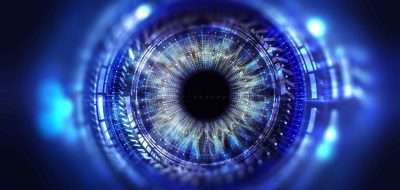My article in BrandsIT on October 20, 2017.
The development of artificial intelligence rests on the assumption that the world can be improved. People may be healthier and live longer, customers may be ever happier with the products and services they receive, car driving may become more comfortable and safer, and smart homes may learn to understand our intentions and needs. Such a possibly utopian vision had to crystallize in the minds of IT system developers to make possible the huge technological advances that are still continuing. When we finally found that innovative products and services (computers that understand natural language, facial recognition systems, autonomous vehicles, smart homes and robots) can really be made, we began having doubts, misgivings and started to ask questions. Tech companies realize that their abstract intangible products (software, algorithms) inevitably entail fundamental, classic and serious questions about good and evil. Shown below are a few basic ethical challenges that sooner or later will force us to make definitive choices.
Revolution in law
Large US-based law-firms have recently begun working closely with ethicists and programmers who are developing new algorithms on a day-to-day basis. Such activities are driven largely by initiatives by US politicians who are increasingly aware that legal systems are failing to keep up with technological advances. I believe that one of the biggest challenges for large communities, states and nations is to modify the legislative system to regulate artificial intelligence responding to the major AI issues. We need this to feel safe and to allow entire IT-related fields to continue to grow. Technology rollouts in business must not rely exclusively on intuition, common sense and the rule that “everything which is not forbidden is allowed”. Sooner or later, the absence of proper regulations will claim victims, not only among innocent people but also among today’s key decision-makers.
Labor market regulation
The robotization of entire sectors of industry is now a fact of life. Fields such as logistics, big data, and warehousing are posed to steadily increase the number of installed industrial robots. There is a good reason why the use of robots is the most common theme of artificial intelligence debates. Such debates are accompanied by irrational fears. Many social groups, including politicians, may explore them for their immediate benefit. What can be done to prevent scaring people with robots becoming a habit? On the other hand, what should one do about people losing jobs to machines? Will the problems be fixed by imposing a tax on companies that use a large proportion of robots? Should employers be aware of the moral responsibility that comes with employing robots that in certain fields may even end up supervising humans? Distinctions between good and evil in this field are crucial and should not be dismissed lightly. Although automation and robotization benefit many industries, they may also give rise to exclusion mechanisms and contribute to greater social inequality. These are the true challenges of our time and we can’t pretend they are inconsequential or irrelevant. …
Link to the full article (in Polish)
Related articles:
– A machine will not hug you … but it may listen and offer advice
– Can machines tell right from wrong?
– Machine Learning. Computers coming of age
– What a machine will think when it looks us in the eye?
– Fall of the hierarchy. Who really rules in your company?
– The brain – the device that becomes obsolete
– Modern technologies, old fears: will robots take our jobs?







